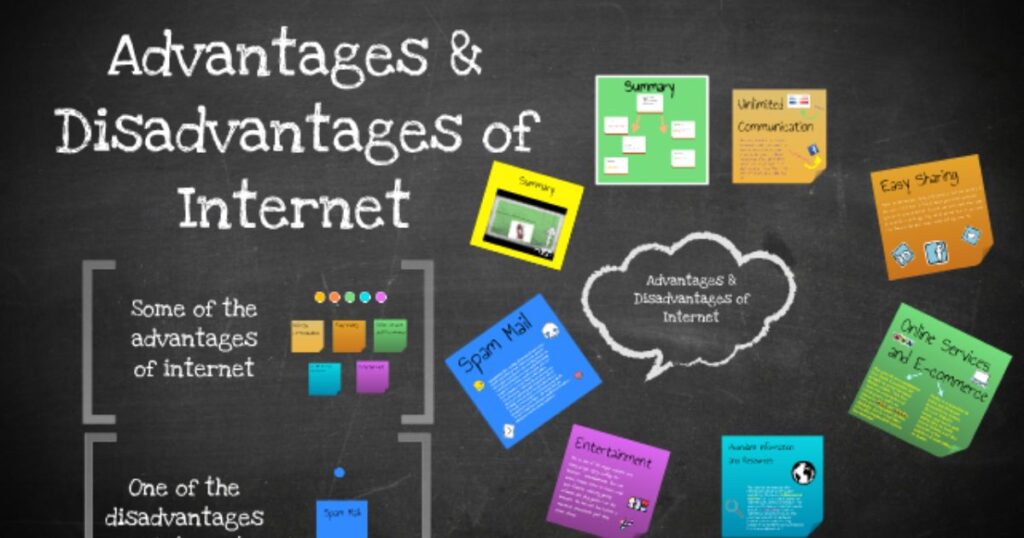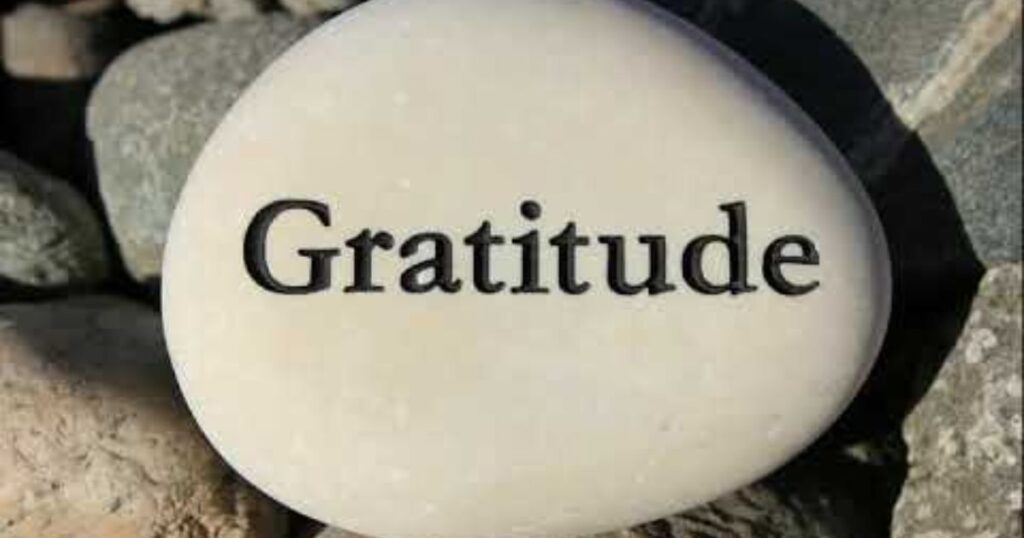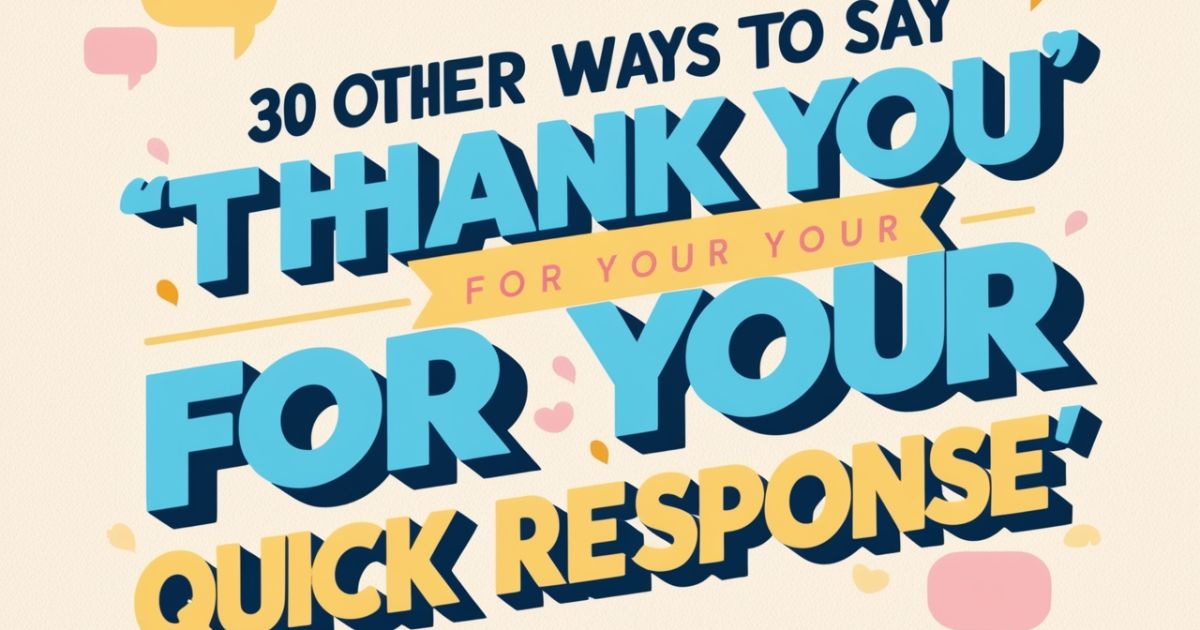In today’s fast-paced business world, knowing how to express gratitude properly can make or break your professional relationships. When someone takes the time to respond quickly to your email or message, acknowledging their effort shows respect and builds stronger connections.
This comprehensive guide will help you master the art of saying “thank you for your quick response” in ways that sound fresh, genuine, and professional.
What Does “Thank You for Your Quick Response” Mean?
The phrase “thank you for your quick response” is a polite way to show appreciation when someone replies to your message promptly. It acknowledges that the person made an effort to get back to you without delay, which you recognize and value.
This expression goes beyond basic manners. When you say “thank you for your quick response,” you are telling the recipient that their time matters to you and that their promptness helped move things forward. Whether you are dealing with a colleague, client, or business partner, this simple acknowledgment can strengthen your professional relationship.
The beauty of expressing gratitude for quick responses lies in its simplicity and universal appeal. Everyone appreciates being recognized for their efforts, especially when they go out of their way to be helpful and responsive.
Is It Professional and Appropriate to Say “Thank You for Your Quick Response”?
Absolutely. Saying “thank you for your quick response” is both professional and appropriate in business settings. This phrase demonstrates several important qualities that employers and colleagues value.
First, it shows you have good business etiquette. Recognizing others’ efforts is a hallmark of professional behavior. Second, it indicates you understand the value of time in business operations. When you acknowledge someone’s quick response, you demonstrate awareness that their promptness contributes to productivity and efficiency.
However, context matters. In very formal business correspondence, you might choose more sophisticated alternatives. For casual team communications, the standard phrase works perfectly well. The key is matching your tone to your relationship with the recipient and the nature of your business interaction.
Advantages and Disadvantages of Using “Thank You for Your Quick Response”

Understanding both the benefits and potential drawbacks of using “thank you for your quick response” helps you communicate more effectively in professional settings.
Key Advantages of Expressing Gratitude for Prompt Replies
Building positive relationships represents the primary benefit of acknowledging quick responses. When you consistently recognize others’ efforts, they feel valued and appreciated. This positive reinforcement encourages continued excellent communication.
Encouraging future responsiveness creates a beneficial cycle. People who receive recognition for their prompt replies are more likely to maintain high communication standards. Your acknowledgment reinforces behavior you want to see repeated.
Demonstrating professionalism sets you apart from colleagues who take quick responses for granted. Employers and business partners notice team members who show appreciation and consideration for others’ time and effort.
| Professional Benefits | Impact on Relationships |
|---|---|
| Shows good business etiquette | Builds trust and rapport |
| Demonstrates time awareness | Encourages continued excellence |
| Creates positive workplace culture | Strengthens team collaboration |
Potential Disadvantages and Limitations to Consider
Overuse can diminish impact when you rely too heavily on the same phrase. If every email contains identical gratitude expressions, recipients may start viewing your appreciation as automatic rather than genuine.
Generic phrasing may seem impersonal in situations that call for more specific recognition. Sometimes a quick response deserves more detailed acknowledgment, especially when the reply required significant effort or expertise.
Timing concerns can make your gratitude seem forced. If you wait too long to acknowledge a quick response, the appreciation loses its immediacy and effectiveness.
30 Professional Alternatives to “Thank You for Your Quick Response”
Diversifying your gratitude vocabulary prevents your communications from becoming repetitive and helps you match your tone to different professional situations. These alternatives to “thank you for your quick response” range from formal business language to warmer, more personal expressions.
Formal Business Communication Alternatives (1-10)

1. “I appreciate your fast reply” works well in professional email correspondence. This alternative to “thank you for your quick response” maintains formality while showing genuine appreciation.
2. “Thanks for the swift response” adds a touch of sophistication to your gratitude expression. This phrase suits formal business relationships and client communications.
3. “I’m grateful for your quick attention” emphasizes both speed and focus. Use this when someone has prioritized your request among competing demands.
4. “I appreciate your promptness” highlights the professional quality of timely communication. This alternative works particularly well in deadline-driven environments.
5. “Your quick response means a lot” adds emotional warmth while maintaining professional boundaries. This phrase works well when someone’s rapid reply genuinely impacts your work.
6. “I’m so thankful for your rapid reply” conveys sincere appreciation without being overly casual. This expression suits situations where someone’s speed truly made a difference.
7. “Thanks for your timely response” emphasizes the importance of good timing in business communications. Use this when prompt replies help maintain project schedules.
8. “Thank you for your quick action” acknowledges both speed and initiative. This phrase works when someone not only replied quickly but also took immediate steps to help.
9. “I’m truly grateful for your speedy reply” adds emphasis to your appreciation. This alternative to “thank you for your quick response” suits situations requiring extra acknowledgment.
10. “I can’t thank you enough for your quick reply” expresses deep appreciation for exceptional responsiveness. Use this when someone’s rapid response significantly impacts your success.
Semi-Formal Professional Expressions (11-20)

11. “Thanks for responding so quickly” strikes a balance between professional and friendly communication. This phrase works well in team environments and established business relationships.
12. “I’m appreciative of your quick feedback” specifically acknowledges input and advice. Use this alternative when someone provides valuable insights along with their rapid response.
13. “Your rapid response is much appreciated” maintains professional tone while expressing genuine gratitude. This phrase suits client communications and formal business correspondence.
14. “Thank you for acting so fast” recognizes both speed and decisiveness. This expression works when someone takes immediate action based on your request.
15. “I value your quick attention” emphasizes the importance of their focus and priority. Use this when someone addresses your concerns promptly despite other responsibilities.
16. “Thanks for getting back to me so quickly” sounds natural and conversational while remaining professional. This alternative to “thank you for your quick response” works in most business situations.
17. “I appreciate your swift feedback” combines gratitude with recognition of valuable input. This phrase suits collaborative projects and consultation requests.
18. “Thanks for the fast reply” offers a concise, straightforward expression of appreciation. Use this in routine business communications and follow-up messages.
19. “I’m grateful for your quick assistance” acknowledges both speed and helpfulness. This expression works when someone provides support along with their rapid response.
20. “I appreciate your speedy action” recognizes prompt initiative and follow-through. Use this when someone not only responds quickly but also implements solutions immediately.
Warm and Personal Gratitude Phrases (21-30)

21. “Thanks for your immediate response” acknowledges exceptionally fast replies. This alternative to “thank you for your quick response” works when someone responds within minutes or hours.
22. “I’m thankful for how quickly you responded” adds personal warmth to professional gratitude. This phrase suits established business relationships and team communications.
23. “Thank you for addressing this so quickly” recognizes comprehensive attention to your concerns. Use this when someone provides thorough responses in minimal time.
24. “I appreciate how fast you got back to me” sounds conversational while maintaining professional respect. This expression works well in ongoing project communications.
25. “Your prompt response is truly appreciated” adds emphasis to your gratitude expression. This phrase suits situations where quick responses enable important business decisions.
26. “I’m thankful for your timeliness” acknowledges consistent good communication habits. Use this alternative when someone regularly provides prompt responses.
27. “Thank you for being so quick to reply” recognizes the effort behind rapid communication. This phrase works when someone prioritizes your requests consistently.
28. “I appreciate you getting back to me right away” acknowledges immediate attention to your message. Use this when someone responds despite busy schedules or competing priorities.
29. “Your quick feedback means a great deal” adds emotional significance to your appreciation. This expression suits situations where rapid input significantly impacts your success.
30. “Thank you for your immediate attention” recognizes both speed and focus. This alternative to “thank you for your quick response” works in urgent business situations requiring prompt action.
Conclusion: Mastering Professional Gratitude Expression
Learning to express appreciation effectively represents a crucial professional skill that impacts every business relationship. While “thank you for your quick response” serves as a solid foundation, expanding your gratitude vocabulary with these thirty alternatives helps you communicate more authentically and build stronger connections.
The key to successful gratitude expression lies in matching your appreciation to the context, relationship, and significance of the quick response you received. Formal business situations call for sophisticated alternatives, while team communications allow for warmer, more personal expressions of thanks.
Remember that genuine appreciation requires consistency, appropriate timing, and sincerity. When you acknowledge others’ quick responses thoughtfully and regularly, you contribute to positive workplace culture while strengthening your own professional reputation and relationships.
Practice using these alternatives to “thank you for your quick response” in your daily communications. Start with phrases that feel natural to your communication style, then gradually expand your repertoire as you become more comfortable with varied gratitude expressions.
Ultimately, the goal is not just to avoid repetition but to communicate your appreciation in ways that feel genuine and strengthen your professional relationships. Whether you choose formal alternatives for client communications or warmer expressions for team interactions, your thoughtful acknowledgment of others’ quick responses will contribute to more positive, productive business relationships.

Faraz Babar is a skilled wordsmith with a keen interest in the rich world of synonyms and language nuances. With a flair for simplifying complex vocabulary, he crafts content that’s both enlightening and enjoyable to read.











